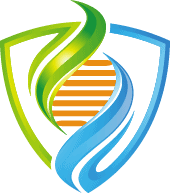Date Published :
09/25/2021
Summary
Abstract
Recently, patient advocacy groups started using the name Gould syndrome to describe clinical features of
COL4A1 and COL4A2 mutations. Gould syndrome is increasingly identified in genetic screening panels,
and because it is a rare disease, there is a disproportionate burden on families to understand the disease
and chart the course for clinical care. Among the chief concerns for caregivers of children with Gould syndrome
are the challenges faced because of epilepsy, including severe manifestations such as infantile
spasms. To document the concerns of the patient population, the Gould Syndrome Foundation established
the Gould Syndrome Global Registry (GSGR).
Methods: The Gould Syndrome Foundation developed questions for the GSGR with iterative input from
patients and caregivers. An institutional review board issued an exemption determination before data
collection began. Participants were recruited through social media and clinician referrals. All participants
consented electronically, and the data were collected and managed using REDCap electronic data capture
tools. De-identified data representing responses received between October 2019 and February 2021 were
exported and analyzed with IBM SPSS 27 using descriptive statistics (mean, standard deviation, frequency,
range, and percent).
Results: Seventy families from twelve countries provided data for the registry, representing 100 affected
people (40 adults and 60 children). This analysis represents a subanalysis of the 35 out of 60 children
<=18 years of age who reported a history of seizures. Nearly half of these participants were diagnosed
with infantile spasms. Participants with epilepsy frequently reported developmental delays (88.6%),
stroke (60.0%), cerebral palsy (65.7%), and constipation (57.1%). Ten (28.6%) children use a feeding tube.
Despite the fact that more than half of respondents reported stroke, only 34.3% reported ever receiving
education on stroke recognition.
Conclusion: Here we describe the development and deployment of the first global registry for individuals
and family members with Gould syndrome, caused by mutations in COL4A1 and COL4A2. It is important
for pediatric neurologists to have access to resources to provide families upon diagnosis. Specifically, all
families with Gould Syndrome must have access to infantile spasms awareness and stroke education
materials. The Gould Syndrome Foundation is planning several improvements to this patient registry
which will encourage collaboration and innovation for the benefit of people living with Gould syndrome.
Copyright 2021 Elsevier Inc. All rights reserved.
Epilepsy and related challenges in children with COL4A1 and COL4A2 mutations: A Gould syndrome patient registry
